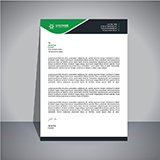Written documentation of client conversations is extremely important when an independent insurance agency is faced with an errors and omissions (E&O) liability claim. A New Jersey state court drove this point home again in a recent decision.
A New Jersey company manufactured and sold wood flooring materials. They had worked for years with a vice-president at a local insurance agency to obtain their coverage. His primary contact at the client was the company’s office manager and bookkeeper (also the company president’s wife.)
The producer met with her a few times a year to get updated property values and sales figures and to discuss coverage recommendations. After their insurer issued renewal policies, he would review them with her.
At first, the business had only one location and it carried $400,000 Business Income and Extra Expense coverage. In 2014, the bookkeeper informed the insurance producer they had added a second location and asked about what additional coverage might be needed. Responding to his questions about how the two locations related to each other, she replied that they were interdependent and that an interruption of operations at either site would impact the entire business.
The versions of the story diverged at this point:
- She testified that he recommended the company carry blanket Business Income and Extra Expense coverage, a concept she was unfamiliar with. He explained it to her and said he would obtain coverage with an $800,000 blanket limit insuring both sites.
- He testified that no such conversation took place, that he never explained blanket coverage to her, and she never requested it. In his opinion, a company grossing $2.6 million in annual revenue did not need $800,000 in coverage; $400,000 was adequate for their needs.
There is no mention of emails or other written communications confirming either version of events.
In September 2014, the producer asked the carrier to add a $400,000 limit for the new location. Hoping to reduce the premium, he asked the carrier if it would provide a blanket limit for the two locations, but they declined.
In October, he sent the bookkeeper a business income worksheet and asked her to complete it so he could determine whether they had the right coverage amount. Receiving no response, he sent a follow-up email in late November. A few days later, she emailed him to ask for a breakdown in their premiums, and he responded with the information and another request for the worksheet. He subsequently asked for the worksheet five more times but never received it.
The policy was renewed in February 2015 with the existing limits. That September, the first location caught fire. The carrier settled the business income loss by paying the policy limits of $400,000 for business income and $50,000 for extra expense. The client had expected $800,000 in coverage. To make matters worse, the fire damaged one of two machines that the fire department concluded did not meet existing code requirements. Neither the insured nor the producer knew about the code issue. The carrier paid for the replacement of only the one damaged machine.
The company’s production did not return to normal until the following spring. The client sued the agency and the producer for $400,000 for failure to obtain proper coverage. They also sought damages for the lack of Ordinance or Law coverage on the machines.
For various reasons, a judge did not hear the arguments until January 2023, at which time he ruled in favor of the agency and producer. The insured appealed, and in July 2025 the appellate court upheld the verdict.
The court found that the producer had done his job and pointed to the failure to complete and return the worksheet as the cause of the underinsurance. They also noted that the producer never called himself a codes expert, and the insured never requested the Ordinance or Law coverage.
The agency’s written requests for the worksheet were vital to its defense of this claim. Documentation of the other conversations would have helped, but the insured’s failure to provide the worksheet after written requests doomed their case. This illustrates again why documentation is so important.
















